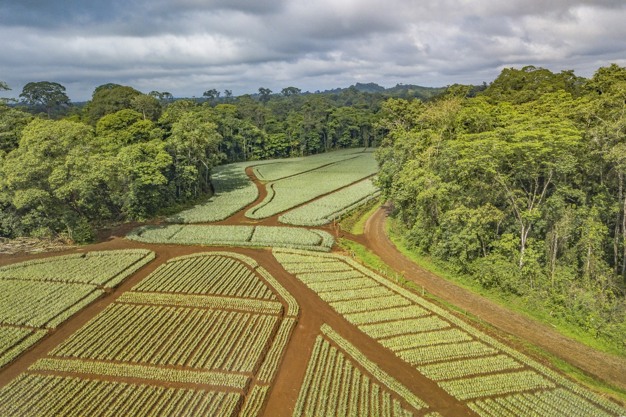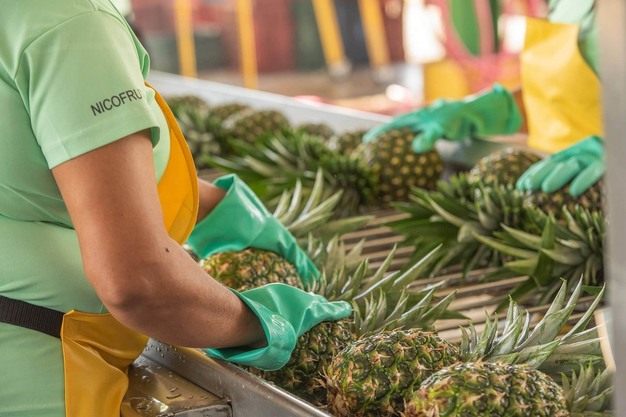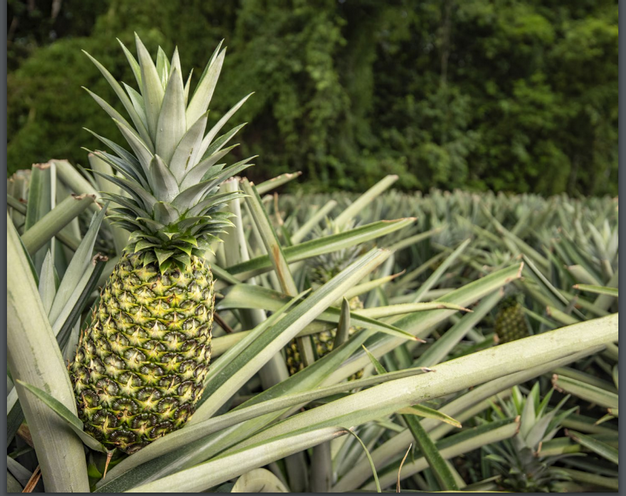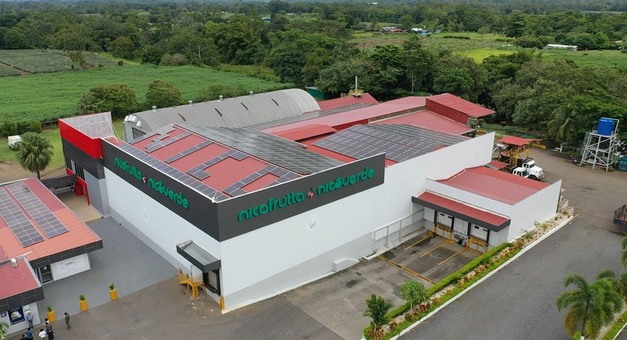The global pineapple market continues to evolve. Although the demand for fresh fruit has remained stable, the juice and frozen products industry is gaining ground.
"Pineapple is a versatile product which can be used to replace oranges and apples in juices, thereby reducing the supply of fresh fruit for export," says Jorge Sánchez, general manager of Nicoverde, a pineapple exporter based in Costa Rica.

However, factors such as extreme weather, currency fluctuations, and rising logistical costs, especially carbon emissions, represent ongoing challenges. "Every year we have to work on trying to adjust not only to weather conditions but also to rising costs and new regulations, such as those of the European Green Pact," he says.
Nicoverde, which annually exports about 1,400 containers of pineapples of the MD2 variety, in addition to avocados and papayas since recently, is especially focused on Europe, a market that represents 95% of its business. "Costa Rica's production is sold quickly, and if we had more, sales would be even greater," says Sánchez.

Regarding prices, the manager highlights an improvement of the situation in the U.S. market, with increases of up to 30% in the second half of 2024; a trend that is expected to continue in 2025 with an additional rise of between 10% and 15%. In Europe, however, while the demand remains high, prices have been less dynamic. "We produce pineapples all year round, but extreme weather conditions, such as excess sun or rain, make the planning difficult and can take a toll on the available volumes," he says.

Under the Boruka brand, the company will use discarded materials from the fruit to develop nutritional supplements such as bromelain, papain, and other roots, as well as natural cosmetic oils derived from avocado. These products will begin to be exported in March 2025. "The circular economy is allowing us to minimize waste and maximize the use of natural raw materials," says Sánchez.
"Since 2020, we have managed to eliminate single-use plastics from our operations and obtained a carbon neutral plus certification. These measures, while essential to remain competitive in markets such as Europe, have increased our operating costs. The commitment to sustainability is non-negotiable, but it entails an additional effort in costs and processes," he says.

The company has been recognized by the Costa Rican Chamber of Exporters (Cadexco) as the best agricultural exporter in the country in 2024. This award highlights its leadership in sustainable pineapple production, as well as its focus on innovation and the circular economy. "It is an honor for us, as well as a reward to our team's hard work to meet quality and sustainability standards," says Sánchez.
For more information:![]() Jorge Sanchez
Jorge Sanchez
Nicoverde SA
Tel.: +506 4001 4612
Tel.: +506 8935 3709
jsanchez@nicoverde.com
www.nicofrutta.it/es

